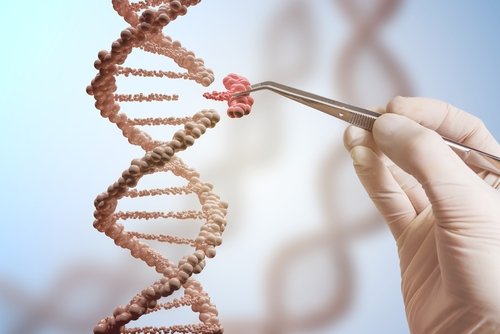CRISPR-Cpf1 Corrects Duchenne Mutations, Restores Dystrophin Expression, UT Study Shows

Researchers from the University of Texas Southwestern Medical Center in Dallas have corrected Duchenne muscular dystrophy (DMD) mutations in human cells and experimental animal models using a new genome editing method called CRISPR-Cpf1. These new findings offer hope in permanently eliminating genetic mutations and rescue abnormalities linked to DMD.
The study, “CRISPR-Cpf1 correction of muscular dystrophy mutations in human cardiomyocytes and mice,” appeared in the journal Science Advances.
Researchers had previously shown that a genome editing method called CRISPR-Cas9 could correct genetic defects that characterize DMD. This team recently received a grant from Parent Project Muscular Dystrophy (PPMD) to continue its studies and identify possible risks associated with the CRISPR-Cas9 method in a clinical setting.
In this latest study, the team used CRISPR-Cpf1 to cut out and repair mutations associated with DMD. This gene-editing method variant has several improvements compared to the earlier method. Cpf1 is much smaller than Cas9 (the enzyme that cuts DNA), making it easier to deliver to the target cells. It is also more flexible in terms of possible therapeutic use.
“We took patient-derived cells that had the most common mutation responsible for Duchenne muscular dystrophy and we corrected them in vitro to restore production of the missing dystrophin protein in the cells. This work provides us with a promising new tool in the CRISPR toolbox,” the study’s senior author, Eric Olson, MD, said in a press release.
“There will be some genes that may be difficult to edit with Cas9 but may be easier to modify with Cpf1, or vice versa,” added Olson, chairman of molecular biology and co-director of the UT Southwestern Wellstone Muscular Dystrophy Cooperative Research Center. “The two proteins have different biochemical properties and recognize different DNA sequences, so these properties create more options for gene-editing.”
DMD is caused by mutations on the gene that encodes the dystrophin protein, which is essential for correct muscle movements. Mutation on its gene leads to a decrease of its expression and loss of muscle strength.
“By either skipping a mutation region or precisely repairing a mutation in the gene, CRISPR-Cpf1-mediated genome editing not only corrects Duchenne muscular dystrophy mutations but also improves muscle contractility and strength,” said co-author Rhonda Bassel-Duby.
Using this new method, researchers showed that it was possible to efficiently and specifically correct common mutations found in the dystrophin gene, restoring the normal protein expression. They showed this not only in patient-derived stem cells carrying DMD mutations, but also an animal model of DMD.
The most common fatal genetic disorder diagnosed in childhood, DMD affects roughly one in every 3,500 live male births. Because the Duchenne gene is found on the X-chromosome, it primarily affects boys; however, it occurs across all races and cultures. Duchenne results in progressive loss of strength and is caused by a mutation in the gene that encodes for dystrophin.
“CRISPR-Cpf1 gene-editing can be applied to a vast number of mutations in the dystrophin gene,” said Olson. “Our goal is to permanently correct the underlying genetic causes of this terrible disease, and this research brings us closer to realizing that end.”






